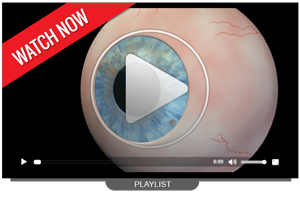- What insurances do you accept?
Medical Insurances we accept:- Aetna
- GHI
- Medicare
- Tricare
- United Healthcare
- Humana (PPO only)
- Spectera
- EyeMed
- How do I know what my insurance covers?
Understanding insurance coverage and benefits can be come very difficult and frustrating. Confusion may arise when determining co-payments, deductibles and which procedures are covered. When you schedule your appointment, our staff will ask you for both your medical and your vision insurance information. If they are plans we accept, we will contact your insurance carriers to determine your eligibility and your benefits. If you are not covered we will let you know what your out of network benefits will be. Please understand that determining your insurance coverage takes time and often requires phone calls to your insurance carrier so you need to provide us with you insurance information prior to your visit. - Co-pays, Co-insurance and Deductibles
Many people mistakenly believe that if they have insurance they do not have any out of pocket expense. Most insurance plans require you to pay either a co-payment for each visit or a co-insurance which is a percentage of the visit. These days, more and more patients are covered by insurance plans with high deductibles. A deductible is a dollar amount for out of pocket expenses that you have to pay first before your insurance will cover the visit. Our staff will inform you if you have not met the deductible. If your deductible has not been met, you will have to pay out of pocket for the office visit. We will be happy to give you an itemized receipt for you to submit to your insurance company. - Medical Insurance vs Vision Plans : What is the difference?
Medical insurance such as Aetna and United Healthcare cover you when there is a medical condition with your eyes. For example, pink eye, floaters, cataracts, glaucoma or eye allergies would be covered by your medical insurance. Vision plans such as Spectera or EyeMed are designed to only cover routine vision wellness exams, in a healthy patient that has no particular problems or symptoms. Vision plans are to be used when there are no medical issues that need to be addressed. Vision plans do not cover medical eye care ( diagnosis, management and treatment of eye health problems). - Why do you need both my medical and vision insurance?
There are instances when something is discovered during a routine eye exam that requires either treatment or further testing. For example glaucoma and diabetic eye disease often have no symptoms and are diagnosed during a routine eye exam. These both require further testing and evaluation which vision plans will not cover. This is an example of when your medical insurance would be used. Another example is when a patient comes in due to discomfort with their contact lenses and wishes to try a different lens. Many times this is due to an underlying corneal infection. In such a cases the patients medical insurance would be billed. If the problem is due to the contact lens, then refitting the patient into a new lens should solve the problem and the visit would be subsidized by the vision plan. Medical insurance covers medical issues. Vision plans cover routine wellness exams. We will do our best to use the appropriate insurance when needed and will do everything possible to minimize your out of pocket expense. - Why is refraction not covered by my medical insurance?
Refraction is testing we do to determine your best spectacle lens prescription. We do this testing during every routine exam and at other times when needed for example, if you are having symptoms of blurry vision. Refraction is regarded by medical insurance and Medicare as a service separate from the eye exam and is billed separately. It is never covered by medical insurance or Medicare. - What is a contact lens evaluation fee?
Contact lens patients require additional testing and monitoring over and above what is done during a standard exam. A seperate exam fee is charged for these special tests, fitting analysis and any follow up visits necessary to obtain a satisfactory fit. - Does my insurance cover contact lens evaluations? It depends on your vision plan's coverage, but most vision plans provide an annual allowance that may be used toward the cost of contact lenses. Our staff will help you maximize your vision discount plan's benefit.
Emergency Eye Care
If you have any of these symptoms listed below please call our office right away and we will see you as soon as possible or the same day. If you are unsure if what you are experiencing needs urgent care, please call our office at (352) 683-2020.
- Flashes of light or floating spots that are new or getting worse.
- A shadow or curtain in your vision
- Redness, burning, stinging, eye pain.
- Mucus discharge.
- Moderate to severe itching of the eyes.
- Light sensitivity and or tearing
- Sudden blur or loss of or part of your vision.
- Acute eye injury eyes such as mascara brush, fingernail, paper cut, chemical exposure, foreign object in your eye or any trauma in your eye.
After office hours, please call our emergency number which you will find on the office answering message or go to your nearest emergency room.





